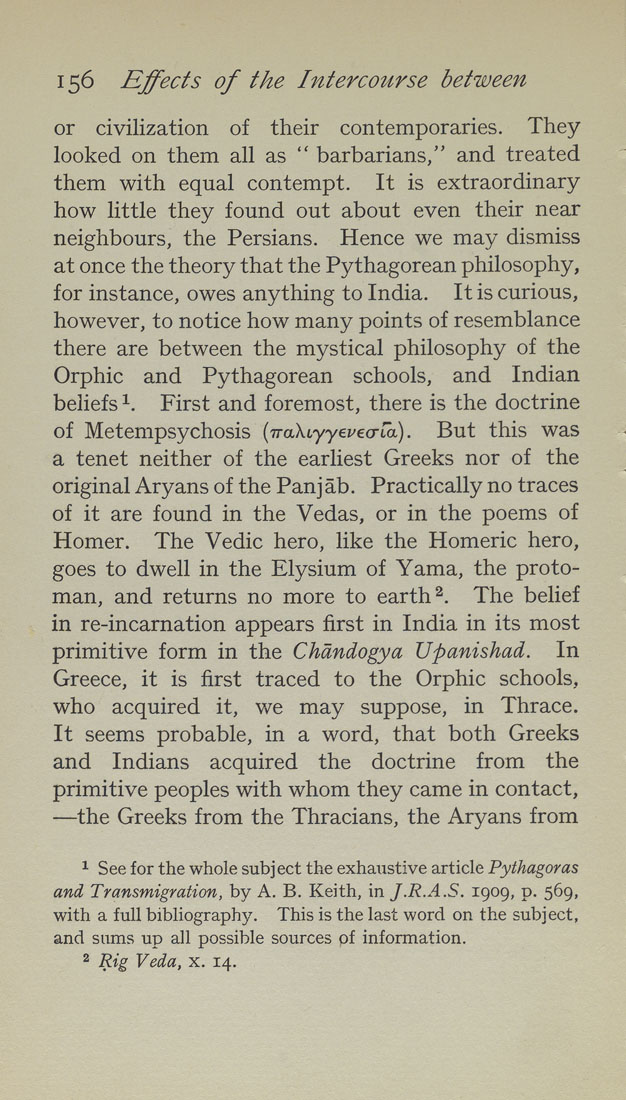156 Effects of the Intercourse between
or civilization of their contemporaries. They
looked on them all as " barbarians," and treated
them with equal contempt. It is extraordinary
how little they found out about even their near
neighbours, the Persians. Hence we may dismiss
at once the theory that the Pythagorean philosophy,
for instance, owes anything to India. It is curious,
however, to notice how many points of resemblance
there are between the mystical philosophy of the
Orphic and Pythagorean schools, and Indian
beliefs 1. First and foremost, there is the doctrine
of Metempsychosis [TraXiyyevea-io). But this was
a tenet neither of the earliest Greeks nor of the
original Aryans of the Pan j ab. Practically no traces
of it are found in the Vedas, or in the poems of
Homer. The Vedic hero, like the Homeric hero,
goes to dwell in the Elysium of Yama, the proto-
man, and returns no more to earth ^. The belief
in re-incarnation appears first in India in its most
primitive form in the Chdndogya Upanishad. In
Greece, it is first traced to the Orphic schools,
who acquired it, v/e may suppose, in Thrace.
It seems probable, in a word, that both Greeks
and Indians acquired the doctrine from the
primitive peoples with whom they came in contact,
—the Greeks from the Thracians, the Aryans from
1 See for the whole subject the exhaustive article Pythagoras
and Transmigration, by A. B. Keith, in J.R.A.S. 1909, p. 569,
with a full bibliography. This is the last word on the subject,
and sums up all possible sources of information.
2 Rig Veda, x. 14.
|








